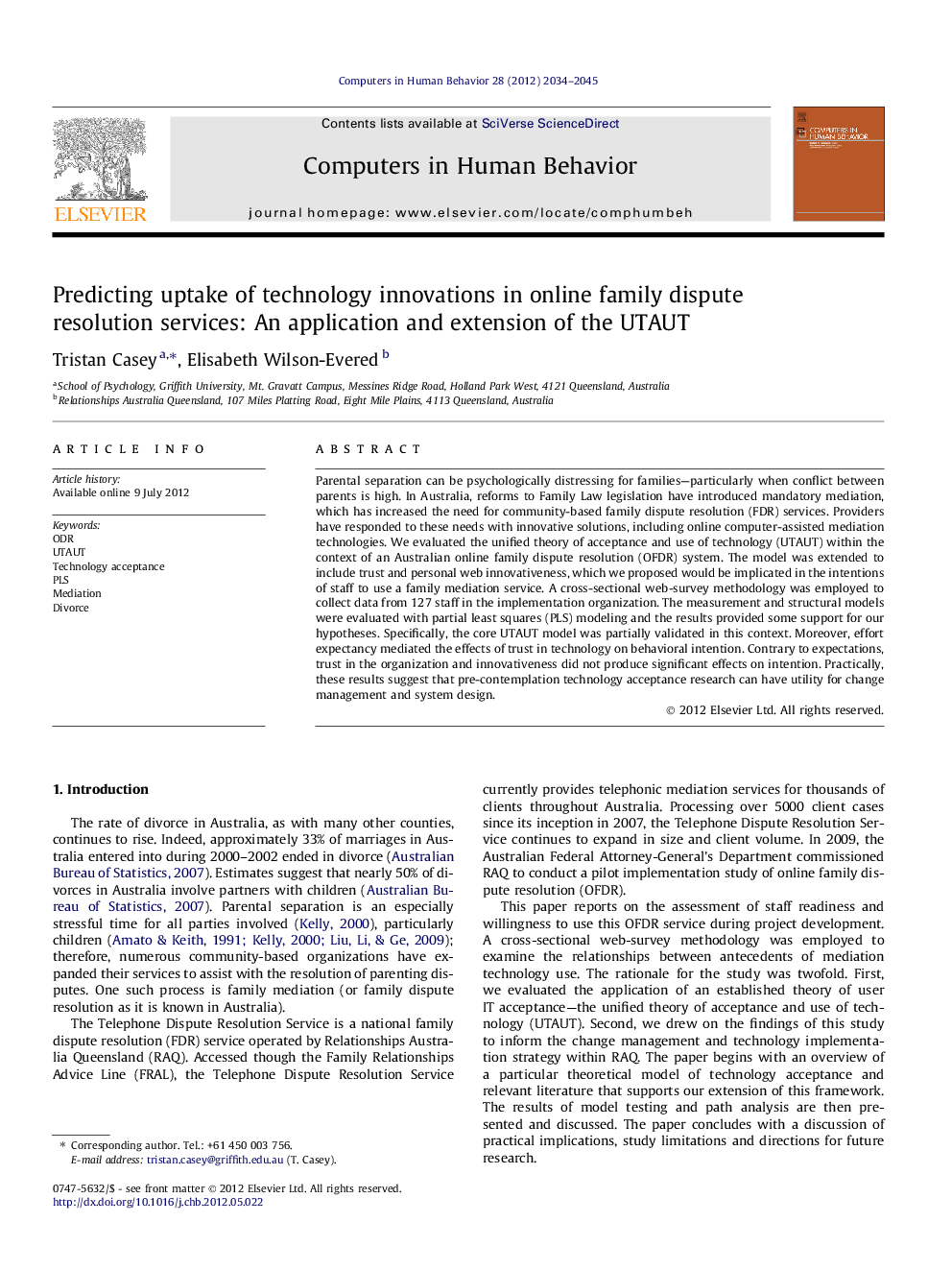| Article ID | Journal | Published Year | Pages | File Type |
|---|---|---|---|---|
| 351289 | Computers in Human Behavior | 2012 | 12 Pages |
Parental separation can be psychologically distressing for families—particularly when conflict between parents is high. In Australia, reforms to Family Law legislation have introduced mandatory mediation, which has increased the need for community-based family dispute resolution (FDR) services. Providers have responded to these needs with innovative solutions, including online computer-assisted mediation technologies. We evaluated the unified theory of acceptance and use of technology (UTAUT) within the context of an Australian online family dispute resolution (OFDR) system. The model was extended to include trust and personal web innovativeness, which we proposed would be implicated in the intentions of staff to use a family mediation service. A cross-sectional web-survey methodology was employed to collect data from 127 staff in the implementation organization. The measurement and structural models were evaluated with partial least squares (PLS) modeling and the results provided some support for our hypotheses. Specifically, the core UTAUT model was partially validated in this context. Moreover, effort expectancy mediated the effects of trust in technology on behavioral intention. Contrary to expectations, trust in the organization and innovativeness did not produce significant effects on intention. Practically, these results suggest that pre-contemplation technology acceptance research can have utility for change management and system design.
► An extended UTAUT model was applied to staff uptake of a new online family dispute resolution system. ► The core UTAUT model was partially validated in this context. ► Effects of trust and personal web innovativeness were mediated by the core UTAUT.
